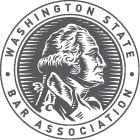Defense Standards: Implementation Guidance and FAQs
Since 1984, the WSBA has maintained practice standards applicable to public defense lawyers—the WSBA Standards for Indigent Defense Services. The Washington legislature provides in RCW 10.101.030 that the WSBA Standards should serve as guidelines to local legislative authorities in adopting their guidelines. In 2012, the Washington Supreme Court (the Court) adopted aspects of the WSBA Standards into court rules. The caseload standards in both the WSBA and Court Standards remained relatively unchanged until recent amendments, driven by a comprehensive review by the WSBA’s Council on Public Defense informed by an historic national study of public defense workloads.
For public defenders, local jurisdictions, and other stakeholders in Washington’s justice system looking to implement the new standards, please use this guidance document for more information about:
A Brief History of Public Defense Standards ▼
Since 1984, WSBA has maintained practice standards applicable to public defense lawyers—the WSBA Standards for Indigent Defense Services. In 1989, the Washington legislature provided in RCW 10.101.030 that cities and counties may use the WSBA standards as guidelines in adopting their own standards. In 2005, this section was amended to say that cities and counties should serve as guidelines to local legislative authorities in adopting their guidelines. In 2012, the Washington Supreme Court (the Court) adopted aspects of the WSBA Standards into court rules . The caseload standards in both the WSBA and Court Standards remained relatively unchanged until the recent amendments.
In January 2022, the WSBA’s Council on Public Defense (CPD) began its review of the WSBA Standards for Indigent Defense Services by convening public defense lawyers, investigators, and administrators; directors of Washington’s public defense agencies; and law professors with expertise in criminal defense to discuss responses to increased caseloads.
In September 2023, the ABA released a study of public defense workloads conducted by the RAND Corporation, the National Center for State Courts (NCSC), the ABA’s Standing Committee on Legal Aid and Indigent Defense, and Attorney Stephen F. Hanlon. In light of this study, the Court asked the WSBA and CPD to review caseload standards contained in the WSBA and Court Standards and make any necessary recommendations to the Court.
Public Defense Standards – Present Day
In March 2024, the CPD proposed revisions to the WSBA Standards for Indigent Defense Services, including changes to the maximum caseloads for Washington public defenders. The CPD proposed a three-year phased implementation schedule for the new caseloads beginning July 2, 2025. The WSBA Board of Governors adopted the revisions, including the caseload standards and implementation schedule, and forwarded the new WSBA Standards to the Court with the request that the Court incorporate the updates into the Court’s standards.
On June 9, 2025, the Court issued an order adopting the proposed caseload standards, however on a modified implementation schedule. The Court’s order directed that the new caseload standards would be effective January 1, 2026. The Court’s order also stated that implementation of the caseload standards must be accomplished as soon as reasonably possible, but by no later than ten years from Jan. 1, 2026, and that jurisdictions must make annual reductions in caseloads of at least 10% of the difference between the current and new caseload standards. Amendments to the Court rules relating to revised standards will be announced in the near future.
Ethical Guidance ▼
Understandably, the different approaches to caseloads and implementation timeline taken by the WSBA Standards and the Court’s order have raised questions among public defense attorneys and administrators who oversee the delivery of public defense services. This page offers resources for ethical guidance and answers to FAQs on the application of the WSBA and Court standards.
RCW 10.101.030 provides that the WSBA Standards should serve as guidelines to cities and counties in adopting their standards.
Attorneys with questions about their individual ethical responsibilities may contact WSBA’s Ethics Line at 206-727-8284 or submit a request for an ethics advisory opinion to the WSBA Committee on Professional Ethics. The WSBA has requested that CPE issue an update to its 1990 Advisory Opinion (linked below) in light of the revised standards and the Court’s order. Nonetheless, WSBA encourages anyone with specific questions to reach out to the Ethics Line or CPE.
Additional Resources ▼
- WSBA Advisory Opinion 1336 (1990).
This brief advisory opinion notes that RPCs 1.1, 1.3, and 6.2 require a lawyer not to accept case assignments that exceed the lawyer’s ability to provide effective representation, and that supervisors of public defense offices are obligated to refuse to accept cases that would exceed the office’s ability to provide effective representation. - American Bar Association, Standing Committee on Ethics and Professional Responsibility, Formal Opinion 06-411 (May 13, 2006).
This opinion from the ABA describes the ethical obligations of lawyers, whether providing direct public defense services or managing the delivery of public defense services, with respect to excessive caseloads. - American Bar Association, Eight Guidelines of Public Defense Related to Excessive Workloads (Aug. 2009).
These guidelines, adopted by the ABA, provide direction for public defense programs and lawyers providing public defense representation to fulfill their responsibilities under professional conduct rules when confronted with excessive caseloads.
Frequently Asked Questions ▼
Why are there two sets of Indigent Defense Standards, one in court rules and another promulgated by WSBA?
The WSBA has long been involved in the adoption of public defense standards. The WSBA Board of Governors first adopted the Washington Defender Association Standards for Public Defense Services in 1984, and a revised version in January 1990. The Washington Supreme Court later adopted its own standards in court rules, which mirrored some of the WSBA Standards. WSBA maintains its standards as comprehensive guidance for public defense attorneys.
Which standards do public defenders need to comply with?
Public defenders need to comply with applicable court rules and the Rules of Professional Conduct (RPCs). The WSBA Standards, and particularly the caseload standards, provide guidance on the professional norms for meeting ethical and constitutional obligations.
Will WSBA be revising its standards to match the Court’s?
As of this time, the WSBA Standards are still in place and have not been modified since the Court issued its order. Whether to propose revisions is an issue for consideration by CPD and ultimately the WSBA Board of Governors. However, if CPD decides to make any recommendations to modify the WSBA Standards, this will not happen until after July 2, 2025.
The Court hasn’t actually adopted final rules. What effect does the court order have?
As an order of the Court, it has the same effect and enforceability of any other court order.
How are the WSBA and Court Standards enforced? What role does WSBA have in enforcing the standards?
The WSBA Standards are intended to provide meaningful guidance and a systemic framework for attorneys representing individual clients and for state and local administrators who “manage and oversee” public defense services. The Washington State legislature requires counties and cities to adopt standards for the delivery of public defense services, regardless of whether public defense services are provided by contract, assigned counsel, or a public defender agency or nonprofit office. In doing so, RCW 10.101.030 provides that the WSBA Standards should serve as guidelines to cities and counties in adopting their standards. The Court’s rules require attorney compliance in professional and ethical obligations, and all public defense attorneys must certify every quarter that they comply with the Court Rule Standards.
In itself, taking on more cases than designated by either court rule or the WSBA Standards is unlikely to constitute a per se violation of a lawyer’s ethical obligations. A caseload in excess of the standards could be a consideration in determining whether an individual lawyer’s caseload has prevented them from fulfilling their ethical responsibilities to an individual client. Courts also may consider whether a jurisdiction or individual attorney is in compliance with either the court rules or the WSBA Standards when evaluating claims of ineffective assistance of counsel or systemic, constitutional challenges to the delivery of public defense in a jurisdiction.
The Court rules require lawyers to certify that they are in compliance with indigent defense standards. Which standards do public defense attorneys certify to—the Court rules or WSBA rules—and to what are they certifying? Can attorneys refuse to sign the court certification?
In criminal and juvenile offender cases and civil commitment cases, the Washington Supreme Court requires appointed attorneys to complete a Certification of Compliance with Applicable Standards on a quarterly basis. The certification asks attorneys to attest to the following information:
- They are familiar with the Court’s Standards of Indigent Defense,
- They “limit the number of cases and mix of case types to the caseload limits required by Standards 3.2, 3.3, and 3.4,”
- As of June 5, 2025, that they meet the minimum basic professional qualifications in the WSBA Standards,
- That they have access to an adequate office space and investigator services,
- And provide additional information about their practice time.
Although the Court has issued an order indicating the changes it will be adopting with respect to caseload maximums, as of June 30, 2025, the Court has not yet issued final rules. This means the Court may modify the certification form. However, at this time, other than the requirement that attorneys attest to meeting the WSBA qualifications necessary to handle specific types of cases, the form asks lawyers to attest that they are in compliance with the Court’s rules.
Accordingly, beginning January 2026, when the Court’s caseload maximums and implementation schedule become effective, attorneys should be certifying to their compliance with those standards.
The certification form is a court filing signed by the lawyer and under RPC 3.3 lawyers must exercise candor to the court. If a lawyer is unable to truthfully attest to the contents of the form, they should not sign and file it. In addition, supervisors should not require subordinate attorneys to complete the form if the supervisor is aware that their supervisee cannot do so truthfully.
Can public defenders be subject to discipline if they exceed the WSBA or Court Standards? How will WSBA handle grievances claiming that a lawyer has exceeded the Court or WSBA caseload standards?
In most situations relevant to public defense, the Rules of Professional Conduct specify an individual lawyer’s ethical obligations in delivery of legal services to a particular client; the Supreme Court’s and the WSBA’s regulatory objective in enforcing the ethics rules is to dispense individualized justice as a public-protection measure. The Standards for Indigent Defense Services and related court rules specifying caseload limits are designed broadly to protect the interests of the population of individuals in need of public defense services, and their purpose is to bring about systemic justice. In general, an instance of noncompliance with caseload limits will not, in itself, constitute per se proof of a violation of a rule of ethics in the representation of an individual client. Conduct such as misrepresenting compliance, falsely certifying compliance, or purposefully exceeding caseload limits to serve the interests of the lawyer or firm rather than the interests of public defense clients, would likely trigger regulatory scrutiny.
WSBA’s Standards include specific case weights. The Court order says the Court will not be adopting any specific mandatory case weights. What guidance does WSBA have with respect to implementing the caseload standards and case weights?
Both the caseload maximums and case weighting adopted in the WSBA Standards are derived from the findings of the 2023 National Public Defense Workload Study. The case weighting system is an integral part of implementing the caseload standards.
The NPDWS is grounded in the constitutional and ethical standards applicable to public defense attorneys. Study participants reviewed constitutional and ethical standards prior to engaging in the study. Bearing that information in mind, study participants were instructed to consider the amount of time necessary to complete case tasks in order to provide reasonably effective assistance of counsel pursuant to prevailing professional norms. The WSBA CPD then based its caseload standards and the weighting given to cases in differing categories of complexity directly on the findings of the NPDWS.
The ABA’s Formal Opinion 06-411, linked above, also indicates that an assessment of whether a caseload is excessive will take into consideration the complexity of the cases. Case weighting builds a degree of assessment of case complexity into caseload standards.
WSBA's weighting, as with the rest of the WSBA Standards, reflects professional guidance and constitutional standards as reflected in the NPDWS study. WSBA standards reflect professional norms and should be used as guidance for jurisdictions adopting their own case weights.
What about jurisdictions that are already ahead of the Court’s implementation schedule? Can they do nothing? Can they increase caseloads or reduce workforce?
The Court order requires that the standards be implemented “as soon as reasonably possible” with an outer limit of 10 years to achieve compliance and a minimum of 10% compliance achieved each year. Doing nothing or taking steps to increase caseloads because a jurisdiction is currently exceeding the 10% minimum compliance is contrary to implementation “as soon as reasonably possible.”
What ethical obligations do lawyers have when assessing their workload under the WSBA and Court standards?
Excessively high caseloads may interfere with defense attorneys’ ability to provide the required level of representation. The Washington Defender Association’s comments to the 2007 version of the Washington caseload standards hold true today: “Caseload levels are the single biggest predictor of the quality of public defense representation. Not even the most able and industrious lawyers can provide effective representation when their workloads are unmanageable. Without reasonable caseloads, even the most dedicated lawyers cannot do a consistently effective job for their clients.”
There are a number of ethics rules that are recognized as implicated in high-caseload situations. In any representation, Washington Rule of Professional Conduct (RPC) 1.1 requires a lawyer to “provide competent representation to a client.” Competent representation “requires the legal knowledge, skill, thoroughness and preparation reasonably necessary for the representation.” Similarly, RPC 1.3 requires an attorney to “act with reasonable diligence and promptness in representing a client” and the commentary to the rule states that “[a] lawyer’s workload must be controlled so that each matter can be handled competently.” RPC 1.7, which addresses conflicts of interest, also prohibits attorneys from representing clients where “there is a significant risk that the representation of one or more clients will be materially limited by the lawyer’s responsibilities to another client.” The ABA has concluded that assignment of more cases to an attorney than that person is capable of handling, “create[s] a concurrent conflict of interest as a lawyer is forced to choose among the interests of various clients, depriving at least some, if not all clients, of competent and diligent defense services.”
What ethical obligations do supervisors have with respect to WSBA and Court standards when assigning cases?
RPC 5.1 defines the ethical obligations of supervising attorneys in Washington. RPC 5.1(b) applies to lawyers with direct supervisory responsibility over other lawyers and requires supervising lawyers to “make reasonable efforts” to ensure their supervisees conform to the Rules of Professional Conduct. RPC 5.1(a) requires lawyers with managerial authority—for instance, upper-level managing attorneys who have the ability to make and implement policies for their programs—to make reasonable efforts to put measures in place that provide “reasonable assurance that all lawyers in the firm conform to the Rules of Professional Conduct.” RPC 5.1 means that supervising lawyers must ensure their supervisees are complying with RPC 1.1, 1.3, and 1.4 by providing diligent, competent representation and communicating with their clients, and that policies are in place to allow them to do so.
In addition, a lawyer may be responsible for another lawyer’s violation of the Rules of Professional Conduct if the (1) lawyer directed or ratified the other lawyer’s conduct or (2) the lawyer has managerial or supervisory authority over the other lawyer and knew of the conduct with enough time to mitigate the consequences, but failed to take remedial action. (RPC 5.1(c)).
ABA Formal Opinion 06-441, pgs. 7-8, provide more guidance to supervisors in the public defense context. Washington’s RPC 5.1 mirrors the ABA’s Model Rule of Professional Conduct 5.1. The ABA’s opinion notes that monitoring the workloads of subordinate lawyers is an essential task of supervising lawyers. The ABA directs that “[i]f any subordinate lawyer’s workload is found to be excessive, the supervisor should take whatever additional steps are necessary to ensure that the subordinate lawyer is able to meet her ethical obligations in regard to the representation of her clients.” (pg. 7). The ABA outlines specific steps supervisors should take if they determine their supervisee’s caseload is excessive. (pg. 7-8).
Comment 2 to RPC 5.2 states, “When lawyers in a supervisor-subordinate relationship encounter a matter involving professional judgment as to ethical duty, the supervisor may assume responsibility for making the judgment. Otherwise, a consistent course of action or position could not be taken. If the question can reasonably be answered only one way, the duty of both lawyers is clear and they are equally responsible for fulfilling it. However, if the question is reasonably arguable, someone has to decide upon the course of action. That authority ordinarily reposes in the supervisor, and a subordinate may be guided accordingly.” However, as articulated in ABA Formal Opinion 06-441, “if the question of whether a lawyer’s workload is too great is “reasonably arguable,” the supervisor of the lawyer has the authority to decide the question. In the final analysis, however, each client is entitled to competent and diligent representation. If a supervisor knows that a subordinate’s workload renders the lawyer unable to provide competent and diligent representation and the supervisor fails to take reasonable remedial action, under Rule 5.1(c), the supervisor himself is responsible for the subordinate’s violation of the Rules of Professional Conduct.” (pg. 8).
Further, ABA Formal Opinion 06-441 states, “[w]hen a public defender consults her supervisor and the supervisor makes a conscientious effort to deal with workload issues, the supervisor’s resolution ordinarily will constitute a ‘reasonable resolution of an arguable question of professional duty’ as discussed in Rule 5.2(b). In those cases where the supervisor’s resolution is not reasonable, however, the public defender must take further action.” (pg. 6).
Like the ABA’s Opinion, WSBA’s Advisory Opinion 1336, also states that “the supervisor of a public defender office is obligated by those rules, as well as RPC 5.1(a) and (c)(1), to refuse to accept cases that would exceed the office's ability to provide effective representation.”
As described above, the WSBA Standards for Indigent Defense serve as professional guidelines for public defense attorneys. Specifically, the caseload maximums in the WSBA Standards are based on research on the relationship between appropriate caseloads and the obligation to provide constitutional and ethically appropriate representation to clients. This research suggests that caseloads that significantly exceed these maximums can endanger an attorney’s ability to adequately represent their clients. For that reason, supervisors who are aware that subordinate lawyers are taking on caseloads in excess of the standards should take steps to evaluate whether the caseload prevents their supervisee from fulling their ethical duties.
With respect to the caseload standards adopted by the Washington Supreme Court, the Court requires individual attorneys to certify that they are in compliance with the standards. Supervising and managerial attorneys should ensure there are systems in place that allow attorneys to truthfully certify that they are in compliance with those standards.






